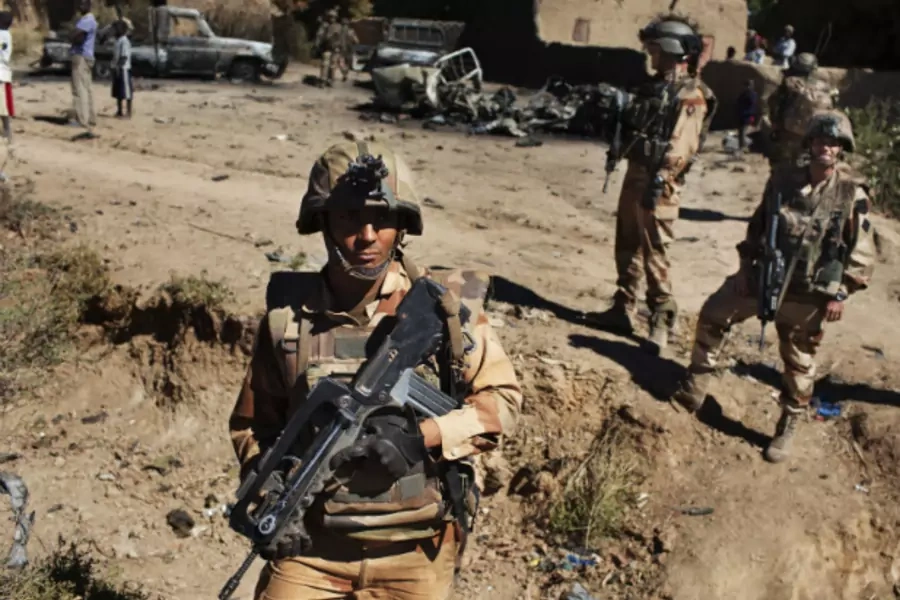Qatar in Mali: Which Side Are They On?

More on:
In the last decade the influence of Qatar has grown greatly, fueled by its vast oil and gas revenues and by the skill of its leaders. Whether that influence is being used positively, or in ways that comport with American interests, are separate matters.
In Mali, there is good reason to question whether Qatar is helping the government of that country and those coming to its aid--France and France’s allies (including the EU, United States, and the nations of West Africa)--or helping the Al Qaeda-linked rebels. As long ago as last summer this question was being asked in France, due to the Qatari presence in northern Mali and its aid to areas controlled by the Islamist groups; the mayor of the town of Gao was quoted as saying "the government of France knows who is supporting the terrorists. There is Qatar, for example...." The same article quoted a specialist at the Sciences-Po in Paris saying "In the same way that Qatar has provided special forces to lead opposition to Gaddafi, we think a number of element Qatari special forces are now in northern Mali to ensure the training of recruits who are in place there, especially Ansar Dine." The French weekly Le Canard Enchaine wrote last June that "Based on information collected by the [Directorate of Military Intelligence], the Tuareg rebels of the MNLA, Ansar Eddine, AQIM, and Mujao were assisted with dollars from Qatar."
Accusations are not proof, and there appears as yet to be no proof. There is a Qatari Red Crescent society presence in northern Mali, and there are programs that Qatar says are providing humanitarian assistance only. But an article at the web site Open Democracy by the French analyst Mehdi Lazar sums up the background well:
the presence of Qatari forces in Mali has been, and continues to be, a strategy used increasingly in Africa, especially since the Arab Spring. The emirate became involved in the financing of political parties such as the Muslim Brotherhood in Tunisia and Egypt in 2011 and 2012, was involved in mediation in Darfur which was held in Sudan in 2011 and engaged in the NATO coalition that fought the regime of Muammar Gaddafi in 2011 (similarly, Qatar has also funded rebel fighters in Libya). Besides the presence of the Qatari Red Crescent humanitarian aid in Mali, one may speculate about other possible reasons for their presence in this part of the Sahel.If the assumption of funding, even training and arming Islamist groups by Qatar forces in northern Mali is confirmed, then it is possible to draw several conclusions.
Firstly, this intervention would provide the emirate with a simple but risky strategy to greatly increase its influence in West Africa and the Sahel. Indeed, Qatar could greatly increase its influence in the mediation between the Malian government, ECOWAS, the northern rebels, and even France. This would increase its political clout on the continent, taking advantage, as it often does, of a favourable political environment. In the case of Mali, it is a failed state with a sudden power vacuum in the North, due both to the Tuareg rebellion in the North and the coup in the South. Add to this, the fortuitous presence in the Sahel of many fighters together with the weapons used in the recent war in Libya, alongside the presence in the North of young and unemployed Tuaregs opposed to the Malian state, and one can see how it might be possible to fund the rebels.
Using this combination of favourable factors, the emirate can see a way to continue making its influence heavily felt in Africa, work also undertaken in Egypt, Libya and Tunisia. In this respect, as in the case of Qatari engagement in Syria, two factors are in common. Firstly, after the success of the Libyan campaign, the emirate feels confident in being able to directly intervene abroad a power perspective. In addition, as in Syria, the presence of the emirate in Mali, if it is real, should be viewed in the context of a twofold competition: first with Saudi Arabia to control the Sunni Islamic world, but also to strengthen the power struggle of Sunni Muslims against Shiite Muslims (because the axis Iran - Syria - Hezbollah remains strong while the Shia in Iraq rises).
Another common point, but this time with Libya, is that Mali is seen as a potential owner of large reserves of natural gas and has a need for infrastructure development; two areas in which Qatar specializes. It could therefore, in the event of good relations with the leaders of an Islamic state in northern Mali, exploit the subsoil rich in gold and uranium, and prospect the country’s oil and gas potential.
Finally, geographically, Mali is also an axis of penetration into black Africa and West Africa where Qatar is pursuing its influence through the purchase of resources and agricultural land, as well as the funding of places of worship.
The subject of the Qatari role is now attracting more attention, for example in a January 22 story in France 24 entitled "Is Qatar Fueling the Crisis in North Mali?" That there has long been a Qatari presence in the north seems clear, but whether it is purely humanitarian or--as some argue--means Qatari aid to and influence over the Islamist and even terrorist groups remains uncertain. Given the new French role in Mali, and American support for it, this aspect of Qatari foreign policy is already proving deeply controversial--and rightly so.
More on:
 Online Store
Online Store